CNC machining services forUSA
Buy durable, high-precision parts
CY's CNC machining services, in USA , makes high quality components for your needs.

DongGuan ChengYang is a leading provider of CNC machining services for Florida. With a strong focus on precision and quality, we pride ourselves on delivering top-notch machining services to meet our clients' needs. Whether it's a small prototype or a large production run, we have the capabilities to handle projects of all sizes with efficiency and expertise. Our team of experienced machinists is dedicated to providing superior service and ensuring customer satisfaction with every project we take on.
At DongGuan ChengYang, we understand the importance of delivering quality products on time and within budget. Our state-of-the-art equipment and cutting-edge technology allow us to deliver accurate and reliable CNC machining services for Florida. From milling to turning, our team is well-equipped to handle a wide range of materials and specifications to meet the unique needs of our clients. With a commitment to excellence and precision, we strive to be your trusted partner for all your CNC machining needs in Florida.
CNC Machining services
Dongguan Chengyang utilizes a full suite of CNC milling equipment—including 3-axis, 4-axis, and 5-axis CNC milling machines, helps us to optimally machining parts ranging from plain to elaborate .
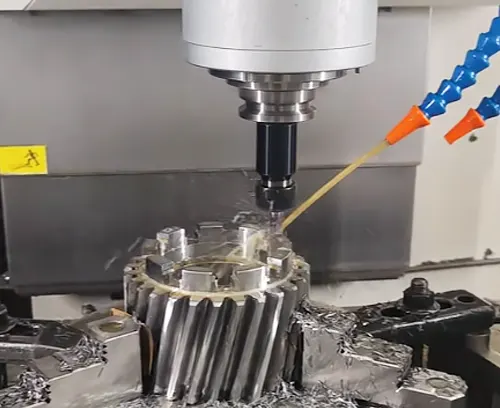
CNC Milling
Utilizing both CNC technologies for versatile production, producing high-performance parts efficiently for our clients.
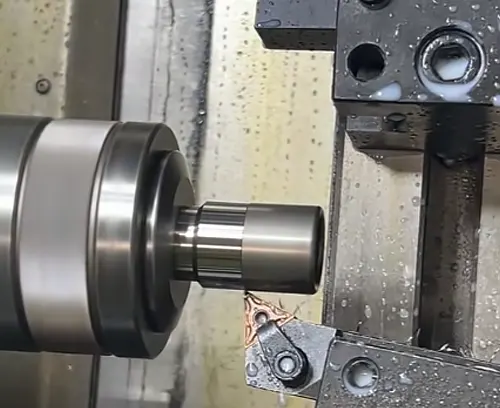
CNC Turnning
CY's CNC lathes, turning centers, and mill-turn equipment enable us withefficiency to construct a broad range of components for every client.
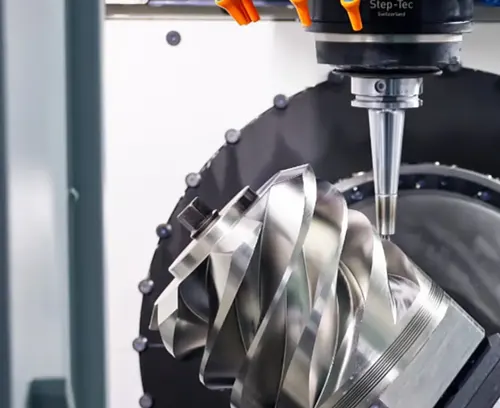
5 Axis CNC Milling
Equip with 5-axis machining solutions for detailed and highly accurate pieces. Featuring quick production, it's perfect for elaborate designs.
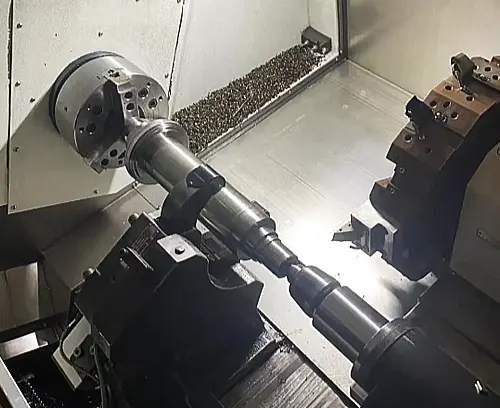
Precision Machining
Deliver high-precision machining by integrating various processes to improve workflow, consistency, and reduce turnaround time, ensuring stable and efficient production.
Capabilities
Maximum Dimensions
2000mm x 1500mm x 800mm or 78.7 x 59 x 31.5 inches.
Maximum Dimensions
2000mm x 1500mm x 800mm or 78.7 x 59 x 31.5 inches.
Support Threading
Prefer Metric Threads, Also Support UNC and UNF threads.
Wall Thickness
Generally, a workable minimum wall thickness is 0.5mm for metals and 1.0mm for plastics.
Material Available
Metals: Aluminum, Copper, Brass, Bronze, Stainless Steel, Carbon Steel, Steel Alloy, Titanium, and plastic, etc .
Tolerances
Dimension: Depends on the size and material, generally +/- 0.01mm or 0.0004 inches
Common CNC DFM
Through Design for Manufacturing, engineers optimize designs to streamline manufacturing, minimize expenses, and reduce the risk of mistakes.

Sharp Corner

Undercut

Undercut

Thick Walls

Tolerance Guide

Small Hole

Narrow Area
Metal Materials
We offer instant quotes for over 100 metals and help compare processing material costs.Easily get instant pricing for over 100 metals and review cost differences in processing.
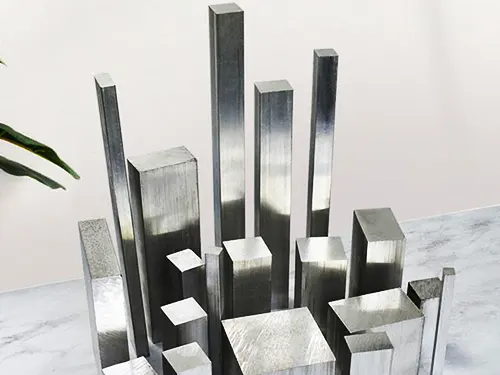
Aluminum
Aluminum is a versatile material used in CNC machining for its lightweight properties, high strength-to-weight ratio, and excellent machinability. Common types of aluminum used in CNC machining include 6061-T6, known for its strength and resistance to corrosion, making it suitable for a wide range of applications. 7075-T6 aluminum is another popular choice due to its high strength and toughness, making it ideal for aerospace and automotive components. Additionally, 2024-T4 aluminum is commonly used in CNC machining for its high fatigue resistance, making it suitable for structural parts and aircraft components. These different types of aluminum offer a variety of characteristics to suit the specific needs of CNC machining projects.
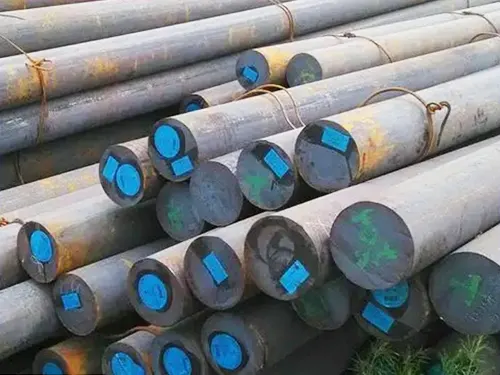
Carbon Steel
Carbon steel is a popular material for CNC machining due to its durability and cost-effectiveness. It is an alloy made from a combination of iron and carbon, with carbon content typically ranging from 0.05% to 2.5%. Some common types of carbon steel used for CNC machining include low carbon steel (such as ASTM A36 or SAE-AISI 1020), medium carbon steel (such as SAE-AISI 1045 or ASTM A572), and high carbon steel (such as SAE-AISI 1095 or ASTM A684). These materials are known for their strength, hardness, and machinability, making them ideal for a wide range of machining applications.
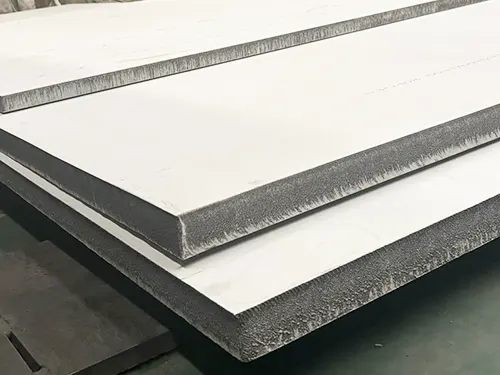
Stainless Steel
Stainless steel is a popular metal used in CNC machining due to its corrosion resistance, durability, and high tensile strength. It is a versatile material that can be easily machined, making it ideal for a wide range of applications. Common types of stainless steel used in CNC machining include 303, 304, 316, and 17-4. 303 stainless steel is known for its excellent machinability and good corrosion resistance. 304 stainless steel is the most common type, featuring good welding properties and high corrosion resistance. 316 stainless steel is ideal for applications where exposure to corrosive environments is a concern. 17-4 stainless steel offers high strength and hardness, making it suitable for applications requiring heavy machining.
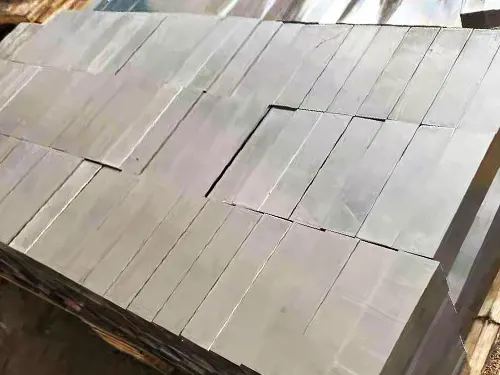
Tool Steel
Tool steel is a type of material specifically designed for use in manufacturing tools and cutting processes in CNC machining. It is known for its high hardness, durability, and resistance to wear and abrasion. Some common types of tool steel used in CNC machining include A2, D2, H13, O1, and S7. A2 tool steel is versatile and suitable for a wide range of applications, while D2 is known for its high wear resistance. H13 tool steel is often used in hot working applications, while O1 is preferred for cold working applications. S7 tool steel is known for its toughness and impact resistance, making it suitable for high-stress applications in CNC machining.
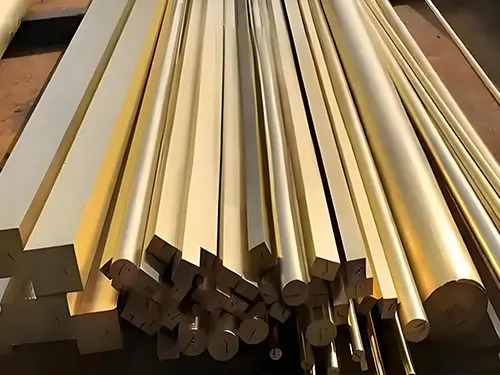
Brass
Brass is a widely used material in CNC machining due to its excellent machinability, corrosion resistance, and attractive appearance. It is an alloy of copper and zinc, typically containing 60-90% copper and varying amounts of zinc. Common types of brass materials used in CNC machining include C360 (free-cutting brass), C280 (Muntz metal), and C260 (cartridge brass). These types of brass offer different properties and are chosen based on the specific requirements of the project. Brass is frequently used to create intricate parts and components in industries such as automotive, aerospace, and electronics, where tight tolerances and high-quality finishes are essential. Its versatility and durability make it a popular choice for a wide range of CNC machining applications.
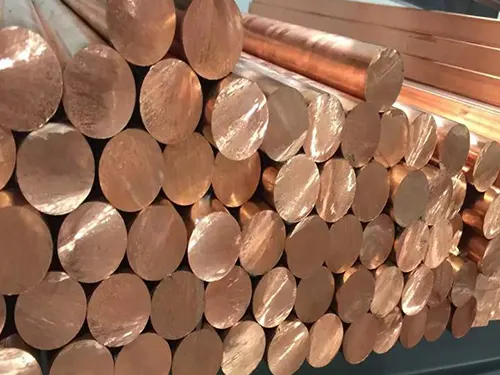
Copper
Cooper, also known as copper, is a commonly used material in CNC machining due to its excellent conductivity and corrosion resistance. It is widely utilized in the manufacturing of electrical components, heat sinks, and intricate parts that require high precision. Some common types of materials used in CNC machining include copper alloys such as brass and bronze, aluminum, stainless steel, and titanium. These materials offer different strengths, hardness, and chemical properties, allowing for a wide range of applications in various industries. When selecting the material for CNC machining, it is essential to consider factors such as the final application, desired finished quality, and the complexity of the part to ensure optimal performance and durability.
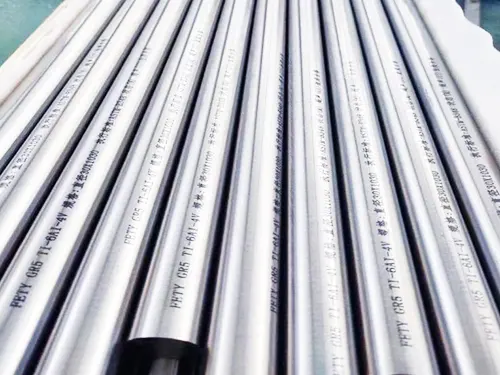
Titanium
Titanium is a popular material used in CNC machining due to its exceptional strength, durability, and corrosion resistance. It is often chosen for applications that require high-performance, precision parts. Some common types of materials used in CNC machining include aluminum, stainless steel, brass, and copper. Aluminum is commonly used for its lightweight properties and high strength-to-weight ratio. Stainless steel is known for its resistance to corrosion and heat. Brass is favored for its malleability and conductivity. Copper is valued for its electrical conductivity and thermal conductivity. Each material has its own unique properties and characteristics that make it suitable for various applications in CNC machining.
Plastic Materials
We offer instant quotes for over 200 plastics and help compare processing material costs.
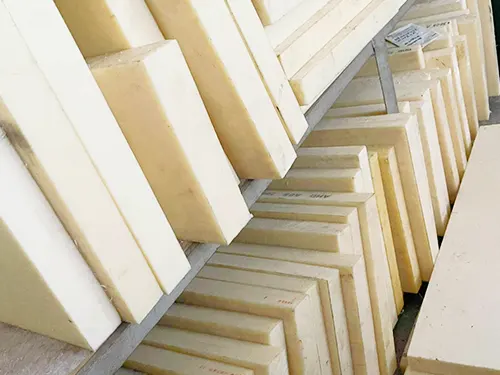
ABS
ABS, or Acrylonitrile Butadiene Styrene, is a common thermoplastic material used in CNC machining. Its advantage lies in its high strength, heat resistance, and impact resistance, making it suitable for a variety of industrial applications. ABS is also known for its ease of machining, allowing for precise and complex designs to be created with minimal effort. However, ABS does have its disadvantages. It can be prone to warping and shrinking during the machining process, leading to inaccuracies in the final product. Additionally, ABS is not as chemically resistant as other materials, making it unsuitable for environments with harsh chemicals. Despite its drawbacks, ABS remains a popular choice for CNC machining due to its overall versatility and cost-effectiveness.
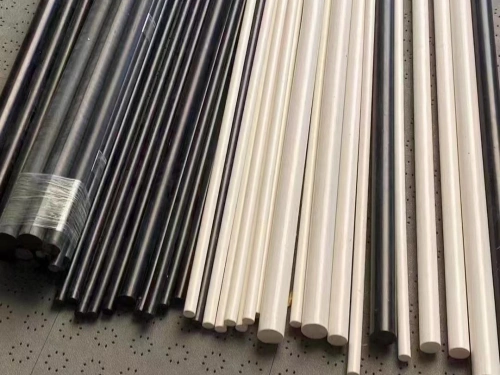
PMMA
PMMA, short for Polymethyl methacrylate, is a commonly used material in CNC machining due to its favorable characteristics. One of the main advantages of using PMMA is its excellent transparency, making it ideal for applications where optical clarity is needed. Additionally, PMMA is lightweight and has good impact resistance, making it a versatile material for a variety of projects. However, PMMA does have some drawbacks, such as its tendency to scratch easily and its relatively lower heat resistance compared to other materials. It is important to consider these factors when choosing PMMA for CNC machining projects to ensure that the material will meet the specific requirements of the application.
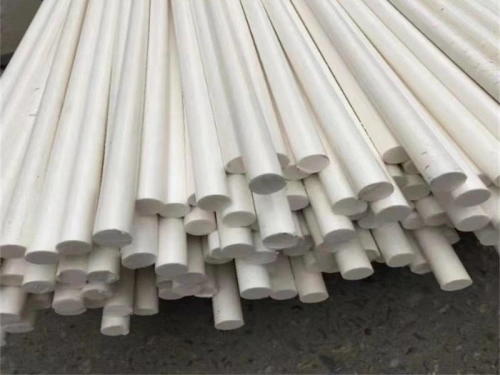
PE
PE for CNC machining stands for “Programmable Electronics” which is a vital component in the world of computer numerical control machining. PE allows operators to input specific instructions and commands into the CNC machine, enabling it to carry out precise and complex tasks with accuracy and efficiency. One advantage of using PE for CNC machining is the ability to automate the production process, reducing human error and increasing productivity. However, a disadvantage of relying solely on PE is the potential for malfunctions or errors in the programming, leading to wasted time and resources. Overall, PE for CNC machining is a powerful tool that can greatly enhance manufacturing processes while also presenting some challenges that need to be carefully managed.
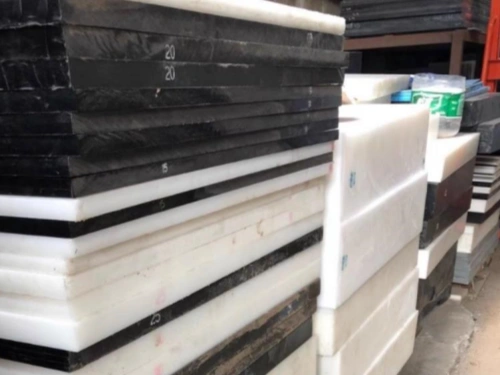
Nylon
Nylon is a popular material used in CNC machining for its excellent versatility and favorable mechanical properties. This thermoplastic polymer is known for its high impact resistance, good tensile strength, and low friction coefficient, making it ideal for a wide range of applications. One of the main advantages of using Nylon in CNC machining is its ability to produce precision parts with intricate designs and tight tolerances. Additionally, Nylon is lightweight, corrosion-resistant, and cost-effective compared to other materials like metals. However, Nylon does have some disadvantages such as limited heat resistance, poor dimensional stability, and the tendency to absorb moisture which can affect its mechanical properties. Overall, Nylon remains a preferred material for CNC machining due to its combination of strength, flexibility, and affordability.
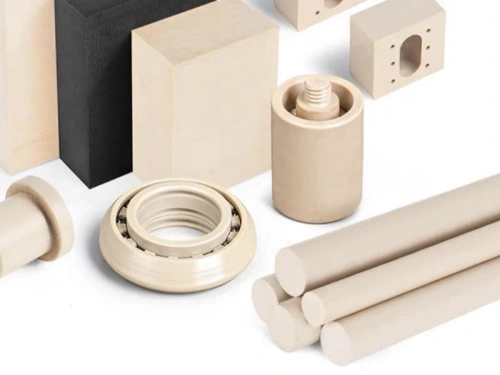
PEEK
PEEK, or Polyether ether ketone, is a high-performance thermoplastic material that is commonly used in CNC machining due to its excellent mechanical properties. PEEK is known for its exceptional chemical resistance, high temperature capability, and wear resistance, making it a popular choice for applications in aerospace, automotive, medical, and other industries. One of the main advantages of PEEK in CNC machining is its ability to maintain dimensional stability and structural integrity even under extreme conditions. However, PEEK can be challenging to machine due to its high temperature resistance, which can lead to tool wear and longer machining times. Despite this drawback, the benefits of using PEEK in CNC machining often outweigh the challenges, making it a valuable material for producing high-quality and durable components.
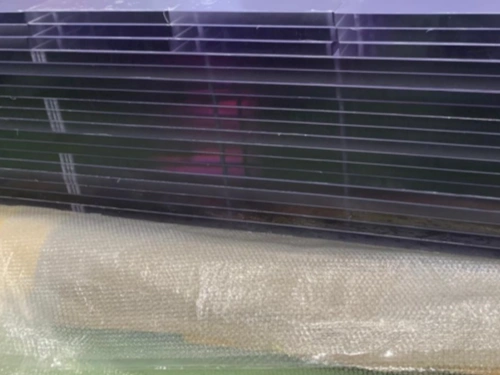
PC
PC for CNC machining, or Personal Computer Numerical Control, is a type of control system used in manufacturing processes that rely on computerized systems to control machining tools. One advantage of using PC for CNC machining is its ease of use and flexibility, allowing for complex and precise designs to be executed with high accuracy. Additionally, PC for CNC machining allows for easy programming and control of multiple axes, making it ideal for intricate and detailed projects. However, one disadvantage is the cost associated with implementing and maintaining PC for CNC machining systems, as they can be expensive to set up and require specialized training to operate effectively. Despite the drawbacks, the advantages of PC for CNC machining make it a valuable tool for industries that require high precision and efficiency in their manufacturing processes.
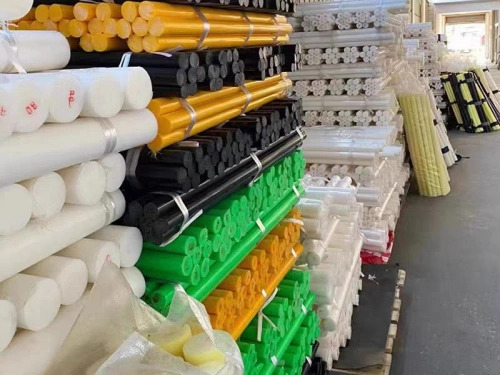
PP
PP (Polypropylene) is a popular material used for CNC machining due to its versatility and cost-effectiveness. Its advantage lies in its high chemical resistance, making it suitable for a wide range of applications, from automotive parts to medical devices. PP is also known for its excellent insulation properties and ability to withstand high temperatures. However, its disadvantage is that it can be prone to warping and is not as strong as other materials like aluminum or steel. This can limit its use in applications that require high strength or precision. Overall, PP is a good choice for projects that require a lightweight and affordable material with good chemical resistance, but may not be suitable for applications that require high strength or tight tolerances.
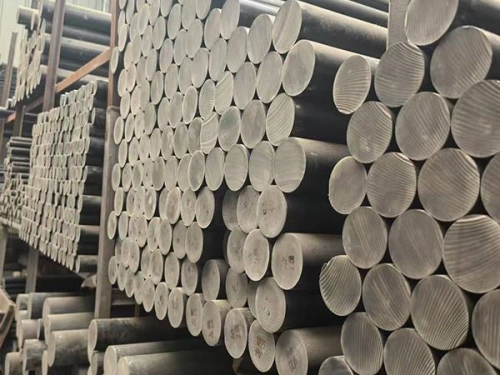
PET
Polyethylene terephthalate (PET) is a popular thermoplastic polymer used in CNC machining due to its excellent mechanical properties, high strength, and dimensional stability. Its advantages include good chemical resistance, low moisture absorption, and easy machinability. PET also has excellent wear resistance, making it suitable for applications where friction and abrasion are concerns. However, a major disadvantage of PET in CNC machining is its tendency to warp and shrink during the machining process, leading to inaccuracies in the final product. Additionally, PET is not as heat-resistant as some other engineering plastics, making it unsuitable for high-temperature applications. Despite its drawbacks, PET remains a versatile material for CNC machining due to its overall strength and durability.
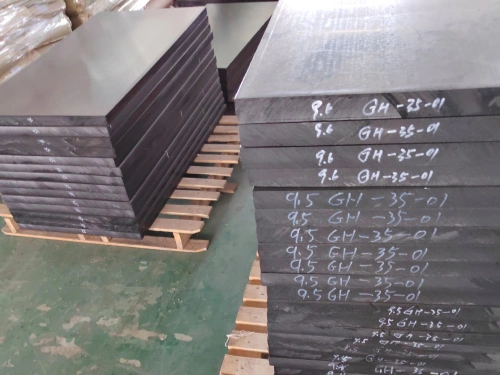
POM
POM, or Program Optimization Mode, is a programming feature used in CNC machining to streamline the cutting process and improve overall machining efficiency. The main advantage of POM is its ability to optimize toolpaths, reducing unnecessary tool movements and minimizing machining time. This leads to increased productivity, reduced wear on cutting tools, and improved surface finish quality. However, a potential disadvantage of using POM is that it may require a higher level of programming expertise to fully utilize its capabilities. Additionally, some traditional machinists may find it challenging to adapt to the automated nature of POM, limiting their ability to make real-time adjustments during the machining process. Overall, while POM offers significant benefits in terms of efficiency and performance, it may not be suitable for all machining applications.
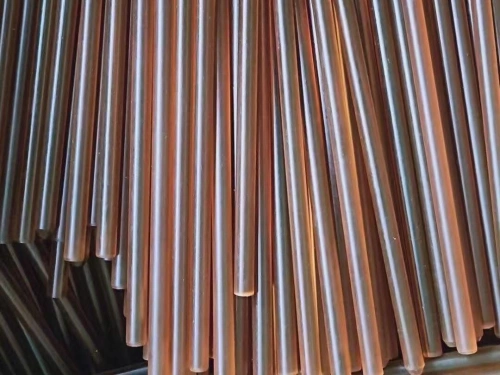
PVC
PVC, or polyvinyl chloride, is a common material used in CNC machining due to its affordability, versatility, and ease of machining. PVC is a thermoplastic material that can be shaped and formed into various shapes and sizes using CNC machines. Its advantages include its low cost, high impact resistance, and excellent chemical resistance. Additionally, PVC is lightweight and can be easily painted or printed on for aesthetics. However, PVC does have some disadvantages, such as its lower mechanical strength compared to metals like aluminum or steel. It is also not recommended for applications requiring high temperatures as PVC has a low melting point. Despite its limitations, PVC remains a popular choice for CNC machining due to its cost-effectiveness and ease of use in producing prototypes, signage, and various products.
Surface Finishes
Our qualified experts provide professional surface finishing solutions tailored to your needs.
| Name | Description | Materials | Color | Texture | More |
|---|---|---|---|---|---|
| Brushing | Brushing is the act of cleaning the teeth and gums using a toothbrush and toothpaste. It helps remove plaque, prevent cavities, and maintain good oral hygiene. Brushing twice a day is recommended for optimal oral health. |
Aluminum, Brass, Stainless Steel, Steel, ABS,etc | N/A | Satin | |
| Sand Blast | Sandblasting is a method used for cleaning, smoothing, or shaping a hard surface by forcing solid particles across that surface at high speeds using compressed air. It is commonly used in industrial and construction settings. |
All Metal Materials, Plastic | N/A | Matte | |
| Tumbling | Tumbling is a form of gymnastics that involves performing a series of acrobatic skills such as flips, twists, and somersaults. It requires strength, flexibility, and proper technique to execute these movements safely. |
All Materials | N/A | Smooth, Matte | |
| Polishing | Polishing refers to the process of smoothing and refining a surface to achieve a desired finish. It is commonly used in metalwork, woodworking, and car detailing to enhance the appearance and functionality of various objects. |
All Materials | N/A | Smooth | |
| Anodizing | Anodizing is an electrochemical process that enhances the surface of metals, typically aluminum, by creating a durable, corrosion-resistant layer. This process involves immersing the metal in an electrolyte solution and applying an electric current to stimulate the formation of the anodic oxide layer. |
Aluminum, Titanium | Clear, Yellow, Green, Blue, Black, etc |
Smooth, matte finish. | |
| Painting | Painting is a visual art form where colors and textures are applied on a surface to create a meaningful and aesthetically pleasing composition. It can convey emotions, tell stories, or simply showcase the beauty of the world. |
All Materials | Clear, Yellow, Green, Blue, Black, Multiple | Gloss, semi-gloss, flat, metallic, textured | |
| Black Oxide | Black oxide is a chemical conversion coating used to blacken ferrous metals, such as steel and iron. It provides corrosion resistance and enhances the appearance of the metal surface by increasing its durability. |
Steel, Stainless Steel | Black | Smooth, matte | |
| Electroplating | Electroplating is a process where a metal object is covered with a thin layer of another metal through electrodeposition. This technique is commonly used to enhance appearance, prevent corrosion, and improve conductivity. |
Aluminum, Steel, Stainless Steel | Gold, Silver, Nickel, Copper, Brass, Zinc, Chrome | Smooth, glossy finish | |
| Powder Coating | Powder coating is a dry finishing process where finely ground particles of pigment and resin are electrostatically charged and sprayed onto a surface. It is then cured under heat to form a durable, smooth finish. |
Aluminum, Stainless Steel, Steel,etc | Custom | Gloss, matte or semi-gloss | |
| Alodine | Alodine is a chemical conversion coating used to protect aluminum and other metals from corrosion. It provides an excellent primer for paint and bonding agents, improving adhesion and overall durability for a variety of applications. |
Aluminum, Stainess Steel | Clear, Gold | As machined | |
| Passivation | Passivation is a chemical process used to make a material more resistant to corrosion. It involves creating a thin film on the surface of the material to protect it from environmental factors. |
Stainess Steel | N/A | Matte | |
| Electroless Plating | Electroless plating, also known as autocatalytic plating, is a method of depositing a metal coating onto a substrate without using an external electric current. Instead, the reduction of metal ions occurs through a chemical reaction. This process is commonly used in industries such as automotive, electronics, and aerospace for its uniform coating thickness and ability to plate complex shapes. |
Metal, Plastic | Gold, Silver, Nickel, Copper, Brass, Zinc, Chrome | Smooth, glossy finish |
Gallery Parts
CNC machining services Locations Near Florida, USA
Our experienced staff ensures smooth, reliable, and high-quality surface finishes.


















FAQ
Here, some of the most common questions about CNC machining services for Florida, USA. ” free to contact us if you have any question.”
FAQs about CNC Machining Services in Florida, USA
Are you looking for CNC machining services in Florida, USA? Here are some commonly asked questions and their answers to help you understand more about this industry:
Q: What is CNC machining?
A: CNC machining is a manufacturing process where pre-programmed computer software is used to control the movement of machinery and tools. It allows for precise and efficient production of various parts and components.
Q: What are the benefits of using CNC machining services?
A: Some benefits of using CNC machining services include increased efficiency, higher precision, cost-effectiveness, and the ability to produce complex shapes and designs.
Q: What industries can benefit from CNC machining services?
A: Industries such as aerospace, automotive, electronics, and medical can benefit greatly from CNC machining services for the production of high-quality components.
Q: How can I find reliable CNC machining services in Florida?
A: You can research online, read reviews, ask for recommendations, and contact companies directly to inquire about their services and capabilities.
Q: What types of materials can be used in CNC machining?
A: Materials such as metal, plastic, wood, and composite materials can be used in CNC machining to create a wide range of products and components.
Q: What is the turnaround time for CNC machining services?
A: The turnaround time for CNC machining services can vary depending on the complexity of the project, the quantity of parts needed, and the capabilities of the machining company.
Q: How much does CNC machining services cost?
A: The cost of CNC machining services can vary based on factors such as material, design complexity, quantity, and additional services required. It is best to request a quote from the machining company for an accurate estimate.
Q: Can CNC machining services provide custom solutions?
A: Yes, CNC machining services can provide custom solutions tailored to meet the specific needs and requirements of each individual project.
Q: What quality control measures are in place for CNC machining services?
A: Quality control measures such as inspection, testing, and certification are often implemented by CNC machining services to ensure the highest level of precision and quality in the final products.
Q: Are CNC machining services environmentally friendly?
A: CNC machining services are considered to be more environmentally friendly compared to traditional manufacturing methods, as they produce less waste and have lower energy consumption levels.
With these FAQs answered, you now have a better understanding of CNC machining services in Florida, USA. Whether you are looking for high-quality components for your industry or custom solutions for your project, CNC machining can provide the precision and efficiency you need.
